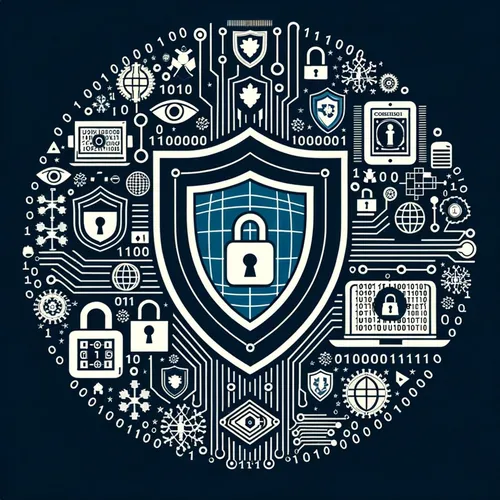Microsoft's China Mess, Reactive Regs, and the Cyber Hamster Wheel
- Author
- Quiet. Please
- Published
- Wed 20 Aug 2025
- Episode Link
- https://www.spreaker.com/episode/microsoft-s-china-mess-reactive-regs-and-the-cyber-hamster-wheel--67458501
This is your Tech Shield: US vs China Updates podcast.
Hey listeners, Ting here with Tech Shield: US vs China Updates for August 20, 2025. Strap in, because this week in cyber defense feels like a race where the finish line keeps moving – and sometimes it’s on fire.
First, the Microsoft saga refuses to die quietly. Remember how the Pentagon relied on Azure Government cloud services? Well, a bombshell surfaced when Microsoft was caught leaving out one tiny detail in its security plans: China-based engineers, yes, actual employees in China, supporting Defense Department systems. Everyone from John Sherman (former DoD CIO) to policy wonks lit up about this “digital escort” system, where US-cleared staff would babysit foreign engineers poking around classified clouds. “We can’t be exposed like this,” Sherman snarked online. Microsoft claims they’ve now stopped using China-based personnel for these systems, but honestly, it’s like putting band-aids on a server rack after the alarm’s gone off.
Meanwhile, Microsoft’s Active Protections Program, which used to give vulnerability info to partners around the world, just blocked Chinese companies from receiving early notifications. Why? Too many leaks! That’s after state-sponsored hackers from China used those vulnerabilities, especially in SharePoint and Exchange, to breach hundreds of critical US agencies, including the National Nuclear Security Administration. Microsoft stopped sharing “proof of concept” code with these partners – now, they only get a bland written description, delivered at the same time as patches go live. Dakota Cary from SentinelOne cheered this decision as a "fantastic change,” noting that these companies were just feeding the dragon.
On the public front, CISA dropped an emergency advisory this week after a fresh vulnerability surfaced in Microsoft Exchange’s hybrid configurations. They’ve ordered agencies to lock down their setups, scan for breaches, and report by yesterday or else. In parallel, federal boards are hammering out new guidelines for submarine cable licensing and unmanned aircraft systems—all aiming to bake cyber hygiene right into the hardware. You could say the new rules are like two-factor authentication for North American data pipes.
Industry isn't just watching from the sidelines. Water utility companies are testing free resilience tools thanks to a collaborative Def Con project. As recent federal requirements fall short, New York’s proposed cyber rules for the water sector are getting shoutouts from the Foundation for Defense of Democracies, with hopes that other states will follow suit.
Let’s talk gaps. While these measures plug holes, experts argue the US response is reactive, always scrambling after the next breach—thanks, InfoSec hamster wheel. Regulatory bodies like CFIUS have gotten sharper at screening Chinese investments, especially in tech and critical infrastructure, but as Cyberscoop points out, their risk framework is still mostly smoke and mirrors. Congressional folks want more transparency, and better standardization is overdue.
In short, defense is improving. Microsoft tightening up, federal agencies patching furiously, and water utilities finally testing their cyber pumps. But the effectiveness depends on how fast agencies can pivot, and if the new rules survive actual hacking, not just committee meetings. The dragon is clever, and so are we – but cyber is a game played in milliseconds, and sometimes, you’re only as good as your latest patch.
Thanks for tuning in, listeners! Remember to subscribe for more Tech Shield updates. This has been a quiet please production, for more check out quiet please dot ai.
For more http://www.quietplease.ai
Get the best deals https://amzn.to/3ODvOta
